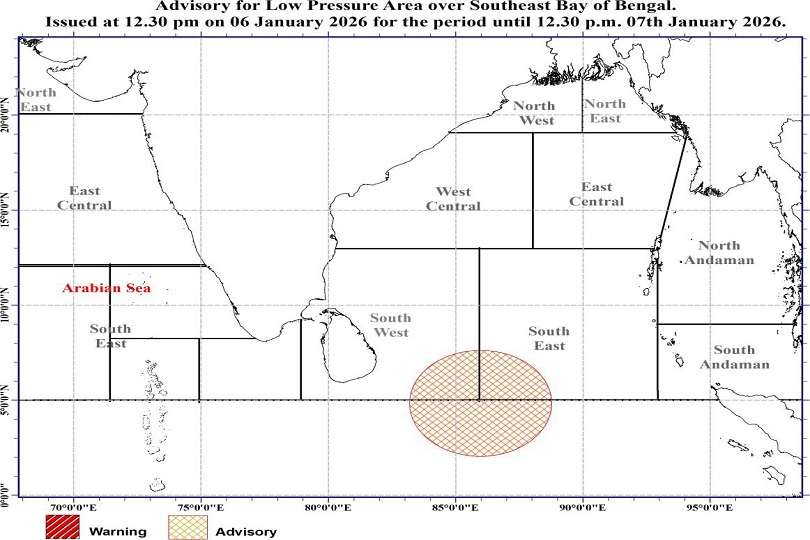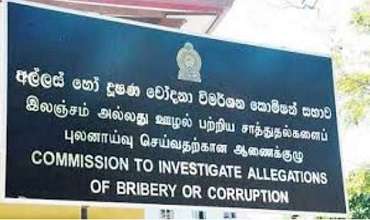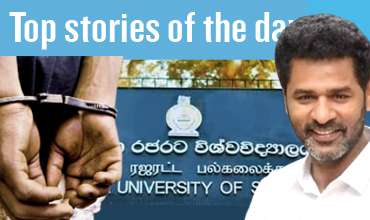Treasury Secretary highlights Personal Data Protection Act as key to privacy & security
The Secretary to the Treasury Mr. Mahinda Siriwardena highlighted the importance of the Personal Data Protection Act No. 09 of 2022, describing it as a pivotal milestone in Sri Lanka's journey to safeguard individual privacy and ensure the secure handling of personal information.
This legislation provides clear guidelines and responsibilities for organizations, particularly government entities, to ensure that personal data is managed in a lawful, transparent, and secure manner, Mr. Siriwardena said.
As government officers, he emphasized that it is essential to fully understand and adhere to these legal obligations to maintain public trust and support the nation's digital transformation.
The full statement is as follows:
The Personal Data Protection Act No. 09 of 2022 marks a significant milestone in Sri Lanka’s journey towards safeguarding the privacy and security of individuals' personal information. It establishes clear guidelines and responsibilities for all organizations, particularly government entities, to ensure that personal data is collected, processed, and stored in a lawful, transparent, and secure manner.
As government officers, it is crucial for us to be fully aware of our legal obligations concerning data privacy and security. Adhering to the Data Protection Act is not merely about avoiding legal repercussions; it is fundamental to maintaining public trust in our institutions.
The government is committed to building a prosperous, advanced, and inclusive nation through digital transformation. In alignment with the DigiEcon 2030 strategy, several projects have already been initiated, including the e-Revenue License System, e-Ticketing System, and National Electronic Payment System, among others.
Furthermore, integrating government revenue information systems is another critical step toward enhancing the efficiency and transparency of revenue collection, reducing tax evasion, and ensuring that government resources are utilized effectively.
I would like to draw your attention to the recent Information Technology Management Treasury Circular No 01/2024. This circular mandates the inclusion of National Identity Card numbers of Sri Lankan Citizens, Passport numbers & Nationalities of Foreigners and Company Registration numbers with the identifications of their Local or Foreign members of the Board of Directors in our government IT systems, enabling unique identification of individuals and entities. The purpose of this mandate is to enhance the efficiency and quality of public services by ensuring accurate and streamlined data management focusing on integration of all government IT systems, culminating in an "Ask Once Policy".
However, it is imperative that all these initiatives are implemented with a thorough understanding of the provisions of the Data Protection Act. We must ensure that our actions align with the legal framework to protect the privacy and rights of individuals.
As we move forward, let us remember that understanding and applying the provisions of the Data Protection Act is not just a regulatory requirement; it is a responsibility we must uphold to build a trustworthy and effective digital government.
I wish to make a brief comment on the ongoing Electronic NIC (E-NIC) Project which is a key component of the government’s digitalization drive. The main objective of introducing unique ID system through the E-NIC Project, which is under the Department for Registration of Persons, is to establish the National Database of Citizens of Sri Lanka (National Registry of Persons) based on bio-metric data in addition to the bio-graphic data to improve the accuracy, efficiency, and effectiveness of public service delivery. This database would facilitate the entire digitalization process of the government with most accurate verification of individual identities through advanced technological solutions.
This transition will enhance the government’s, private, and other entities’ capacity to provide more efficient services to their customers. It will also enable the government to identify financial transactions in a more transparent way. This would contribute to formalization of the economy and significantly improve tax administration efforts as well. It will also streamline coordination between government institutions, consequently providing convenience to the public. A digitally enabled government will also facilitate greater productivity, driving efficiencies and helping the management of public expenditure without compromising the quality of public service delivery. Therefore, it is clear that digitalization has important implications for overall fiscal management as well.
Digitalization is a crucial element in enhancing economic productivity, which is the key to sustainable growth. Key sectors such as logistics, agriculture, tourism, high end manufacturing, and IT enabled services will all benefit from the process of digitalilisation. Digitalisation is also key to creating a more inclusive economy, where the smallest rural SMEs and the newest startups will be able to access markets in Sri Lanka and beyond our shores by leveraging the digital economy. Experiences of other countries, including neighboring India, demonstrate the role that such digitally enabled enterprises have in job creation in the economy. Steps have already been taken to unlock widespread access to high speed broadband services, including recent legislative amendments to the Telecommunications Act. Such access to high speed broadband would greatly enhance digital inclusion and delivery of key public services through digital channels, including e-health and online education.
Therefore, these efforts towards fast tracking the E-NIC and Sri Lanka Unique Digital Identification (SL-UDI) will be crucial enablers in the process of Sri Lanka’s digital transformation. I am pleased to note that the process towards implementation of SL-UDI is now in advanced stages of implementation. At present, the bio-metric system procurement is being finalized. The government expects to publish the Gazette to commence data collection under the new system from October 2024. SL-UDI will be a crucial element in enhancing efficiency of public service delivery, targeting benefits, enhanced digital payments, and improved tax collections as we shift away from cash.
All these developments highlight the fact that the government has already taken a series of measures to digitalize the economy which is a key policy measure of the government.
The government is committed to build a digitalized modern Sri Lanka through the digital transformation, and work is being done to accelerate the related process by digitalization of the government sector. The urgency, required efforts, and the benefits of digitalization have been well understood, and a systematic approach is being followed to ensure the digitalization as early as possible. I expect the benefits of these efforts will come in the coming years through improved systems, processes, coordination, efficiency etc.
-
Still No Comments Posted.













Leave Comments